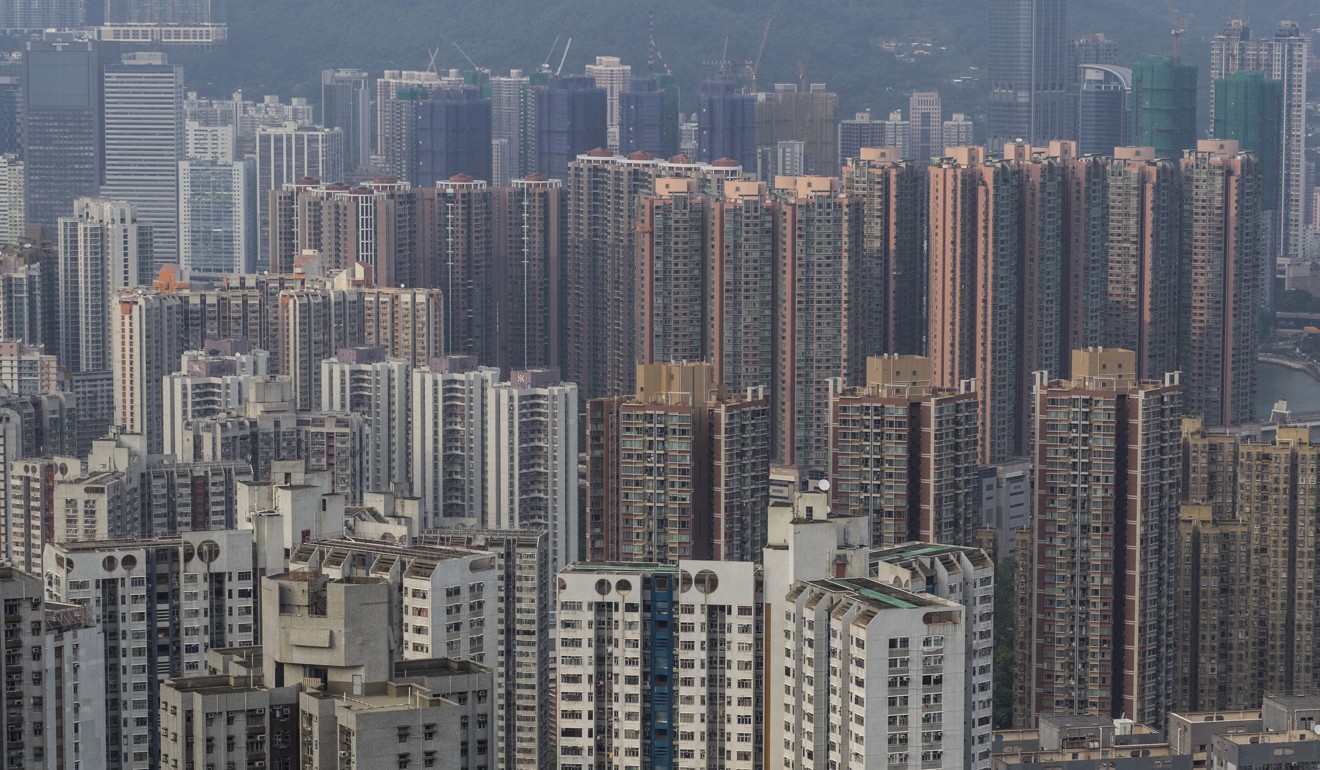
Bid to break chains of Hong Kong housing market as way to boost ownership
Scheme from Our Hong Kong Foundation would lower premiums homeowners of subsidised flats must pay by removing market inflation factor
Owners of subsidised flats may not have to pay a high price to fully privatise their properties under a pilot scheme proposed on Monday that echoes the vision of Hong Kong’s leader to boost home ownership.
Our Hong Kong Foundation, a think tank founded by former chief executive Tung Chee-hwa, suggested the premium that subsidised flat owners needed to pay the government to be able to sell or let out their properties should not be linked with market inflation.
Property tycoon Walter Kwok supports using land bank for affordable homes scheme to ease Hong Kong’s housing crunch
Stephen Wong Yuen-shan, head of public policy at the foundation, said subsidised flat owners under the existing system only co-owned their flats with the government, and skyrocketing property prices meant unaffordable premiums, rendering full ownership of the flats almost impossible.
“The key of our proposal is that the premium is no longer linked with the property market, so it will not keep rising infinitely,” Wong said. “We don’t want the government to also benefit from the increase in a flat’s value even after it sells the flat.”
The premium – reflecting the difference between the market price and the subsidised price – needs to be paid before an owner can sell a flat in the private market and reap the benefits of full ownership.
For example, if a subsidised flat priced at HK$5 million is sold at a price about 30 per cent off the market value, the buyer only needs to pay HK$3.5 million, with a HK$1.5 million difference.

Under the existing mechanism, if the owner wants to sell the flat after a five-year lock-up period, the buyer must pay a premium reflecting 30 per cent of the then market value, meaning if the flat’s value has increased to HK$10 million by that time, the owner must now pay HK$3 million.
But under the pilot scheme proposed on Monday, the premium is fixed so the owner only needs to pay HK$1.5 million.
Can a government push for home ownership ease Hong Kong’s housing shortage?
As of March last year, the premiums for about 270,000 subsidised flats in Hong Kong – 83 per cent of the existing stock – have not been paid.
Wong noted that subsidised flat owners in Singapore could automatically become full owners after a lock-up period without having to pay any premium.
He suggested using Singapore as a model, adding that lowering the premium during a market downturn could also be open for discussion.
‘Crisis in the making’: Housing report says Hong Kong stamp duty damages second-hand market
The foundation also urged the government to consider its earlier proposal to price subsidised flats based on construction costs instead of market rates. That could mean selling flats at 50 per cent off the market price.
The think tank also called on the government to further consider allowing public housing tenants to buy their flats as the final stage of boosting property ownership in the public sector. If this was allowed, the foundation said, an estimated 75 per cent of Hong Kong families could become homeowners in three decades.
Monique Wan Shui-ki, associate professor of economics at Baptist University, was concerned that allowing owners to sell subsidised flats in the private sector at market rates – without having to pay a full premium – would encourage owners to use subsidised properties for investment.
“It’s like using tax payers’ money to subsidise [the owners’] investment,” Wan said.
She pointed out that unlike Hong Kong, Singapore had strict rules to prevent speculation, promoting the philosophy that homes were not commodities.
Wan said although easing the premium requirement could increase supply in the private market, it might not make prices more affordable because of other factors such as increasing demand and the flood of mainland investors.
She advised the government to require subsidised flat owners to sell their flats either to the government, public housing tenants or qualified subsidised housing buyers, instead of putting them on the private market.

